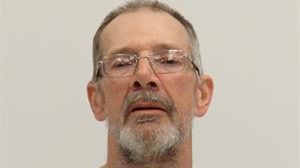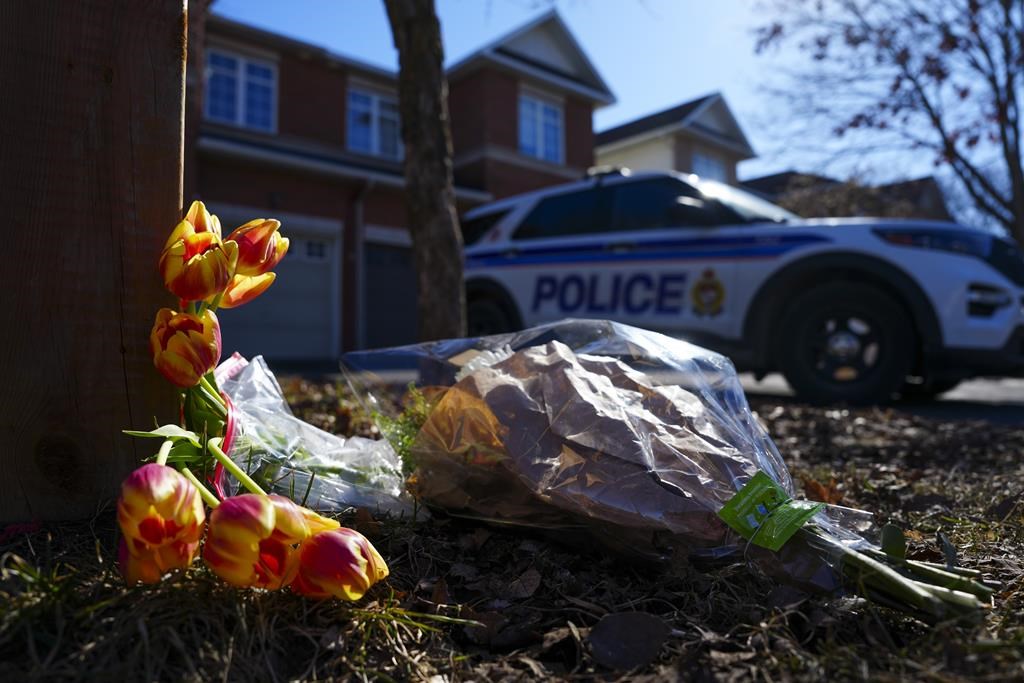Remember This? Ottawa shows help launch Oscar Peterson’s career
Posted Nov 30, 2020 02:00:00 PM.
OttawaMatters.com, in partnership with the Historical Society of Ottawa, brings you this weekly feature by Director James Powell, highlighting a moment in the city's history.
December 5, 1945
In the firmament of great jazz musicians, few stars sparkle as brightly as that of Oscar Peterson.
Born in 1925 to a hard-working, immigrant family from the poor St. Henri neighbourhood of Montreal, Peterson burst like a fiery comet onto the jazz scene while still a teenager.
Over a career that spanned more than 60 years, Peterson wowed audiences around the world with his prodigious piano technique, his amazing talent for improvisation, and a range that encompassed everything from the classics to stride, blues, boogie and bebop. He played with all the jazz greats of his age, including trumpeters, Louis Armstrong, Roy Eldridge, and Dizzy Gillespie, saxophonists Charlie Parker and Lester Young, and such famed vocalists such as Sarah Vaughn, Billy Holiday, and Ella Fitzgerald. Demonstrating his range, he also accompanied such artistic luminaries as Fred Astaire, and the great violinist Itzhak Pearlman. It was Roy Eldridge who dubbed Peterson the “Maharaja of the Keyboard.” Louis Armstrong called him “the man with four hands.”
As well as playing the piano, Peterson was a talented composer, and had a singing voice comparable to that of Nat King Cole. His best known compositions are the Canadiana Suite, an album released in 1964, and Hymn to Freedom, composed in 1962. Oscar Peterson and his trio played Hymn to Freedom in 2003 at a gala in Canada to celebrate Queen Elizabeth's Golden Jubilee. In 2008, the Hymn was played at U.S. President Obama's inauguration.
Jazz was in Peterson's blood. Both his parents, Daniel and Olive Peterson, had a passion for music, and encouraged their five children to learn instruments. A tight family budget was stretched to include a piano. Daniel Peterson, a self-taught piano player, instructed his wife and their five children how to play.
Young Oscar initially studied the trumpet as well as the piano, but after a lengthy bout with tuberculosis in the early 1930s, which claimed the life of his older brother Fred, Oscar concentrated on the piano. Father Daniel was a demanding teacher, insisting on daily practice and assigning musical homework for his children while he was absent working as a porter on the railway. But Oscar, with his perfect pitch and ability to play songs by ear, was up to the challenge. Later, his older sister Daisy became his piano instructor.
His first exposure to jazz came from listening to radio. His father, however, looked down on jazz seeing it as music for the uneducated. He insisted that Oscar learn the classics. Peterson later studied under two classically-trained pianists, Lou Harper and Paul de Marky, the latter was Canada's most acclaimed classical pianist of the time who taught music at McGill University in Montreal. He also instructed private students, charging $15 hour, a huge sum for Oscar's parents (equivalent to more than $200 in today's money). From a very early age, Oscar played in churches, community centres, and schools. It was in such venues, Oscar began to learn how to improvise.
Peterson's first big break came in 1940 when he auditioned for an amateur music contest hosted by CBC radio. He went on to win not only the Montreal competition but also the national finals held in Toronto. He was only 15-years old, and the only black contestant. He received a cheque for $250 (close to $4,000 today). From there, there was no looking back. He quickly out-grew his Montreal High School band, the Victory Serenaders, and gigs in the school gym. In 1943, he dropped out to play full-time in a popular Montreal big band led by the trumpet player Johnny Holmes after a spot for a pianist opened up when the group’s regular pianist was drafted into the army.
Peterson received further national exposure in 1945 when RCA Victor, one of Canada's largest recording studios agreed to record him, releasing two 78 rpm records. They were hugely successfully. In early June 1945, Freiman's Department Store on Rideau Street advertised in The Ottawa Journal, “A new VICTOR 'discovery' for your piano pin-up collection. Name: OSCAR PETERSON, just a youngster of eighteen, a Canadian lad of inspired rhythm that flows from his fingertips in a sparkling, ear tingling, original style all his own.” The store encouraged people to come listen to a sample recording of I Got Rhythm at Freiman's Record Studios located on the third floor of the department store, daring them to try to keep their toes quiet.
Peterson's first known public performance in Ottawa took place on Wednesday, December 5, 1945 at the Glebe Collegiate Auditorium at 8:30 p.m.
The performance called Hot Jazz, featured Oscar Peterson and his jazz trio: Peterson on the piano, Russ Dufort on drums, and George Murphy on bass. The prices of admission was 90 cents, $1.20, and $1.50. The trio played to a capacity crowd, with people standing two and three deep at the back of the auditorium. Extra seats were placed on the stage. Students from Carleton Colleges (later Carleton University) sat or stood behind the stage, so that they could at least hear the music even if they couldn't see the artists. The Ottawa Journal reporter described the twenty-year old Peterson as “one of the foremost exponents of jazz.” The night's programme featured both classical pieces such as Chopin's Polonaise as well as jazz pieces, including Duke Ellington's C Jam Blues and Peterson's own composition “The Boogie Blues.”
The enthusiastic crowd gave the trio three encores. At one of the encores, Peterson played the Sheik of Araby that he had recently recorded. The journalist concluded by saying that Peterson's boogie-woogie was “probably the best heard in Ottawa for some time.”
The trio returned to the Glebe Collegiate the following May. More than 1,200 people crammed into the school auditorium to hear them again perform a selection of classical and jazz numbers, including Peterson's own compositions.
Between these two Ottawa performances, Peterson made his debut at the prestigious Massey Hall in Toronto in early March 1946. Most of the audience that night had only heard Peterson through his records.
As in Ottawa and elsewhere, the crowd was dazzled by his technique and imagination; Oscar Peterson had made it to the big time. Appearances on the CBC radio series Canadian Cavalcade cemented his reputation for being the country's most popular, up-and-coming, young artist.
He made his American debut in 1949 at Carnegie Hall in New York City, where he played alongside Dizzy Gillespie, Buddy Rich, and Ella Fitzgerald. Peterson had been “discovered” by music promoter Norman Granz who had been in Montreal for a meeting. Hearing Peterson play on the radio, Grantz, who produced the “Jazz at the Philharmonic (JATP)” series of concerts, tours, and recordings, invited him to perform in New York. From then on, Oscar Peterson was an international star.
In 1950, Grantz, who later became Peterson manager, signed him to a contract to perform with JATP. Over the following decade, Peterson participated in fifteen, cross-continent JATP tours. Peterson's business relationship and friendship with Granz lasted until the latter's death in 2001.
Over the decades, Peterson performed in a number of small groups, usually trios. During the 1950s, the other two members of the group were Ray Brown on bass, and Herb Ellis on guitar.
In 1958, Ellis left the trio and was replaced by drummer Ed Thigpen. During the 1970s and 1980s, Peterson played with Joe Pass on guitar and bassist Niels-Henning Pederson. In the late 1990s, Peterson formed a quartet, with Pederson on bass, Martin Drew on drums, and Ulf Wakenius on guitar.
Although successful from an early age, Oscar Peterson faced major challenges, not least of which was the racism that he confronted, especially when he toured the U.S. south during the 1950s and 1960s. Even in Canada, he had to endure discrimination, with hotels unwilling to hire black musicians. On one highly publicized occasion in 1951, he was denied a haircut in Hamilton, owing to his colour. The city's mayor later apologized.
In his quiet, understated way, Peterson fought back. He wrote his Hymn to Freedom in support of the civil rights movement. He was also instrumental in Canadian television advertising becoming more inclusive of minorities. Peterson's home life also suffered from his constant touring. He was married four times. He also largely missed out on seeing his seven children grow up.
Late in life, after suffering a stroke while performing in New York, his ability to use his left hand was impaired. Peterson fought through depression, and continued to perform to adoring audiences. He passed away from kidney failure on December 23, 2007 at age 82.
During his lifetime, Peterson received many honours. Sixteen universities, including Carleton University, awarded him honorary doctorates. From 1991-94, he was Chancellor of the University of York in Toronto. He also received eight Grammies from the National Academy of Recording Arts and Sciences, including a lifetime achievement award in 1997 for his more than 200 records. In 1972, he was made an Officer of the Order of Canada, and was promoted to Officer of the Order in 1984. In May 2010, just over two years after his death, Queen Elizabeth unveiled a statue of Oscar Peterson seated at his piano outside of the National Art Centre, a place where he had played many times during his long and productive career.










